A lot of really pivotal bands were formed in this year, and as we did for the previous year let's take a rather quick look at who they are, and what sort of an impact, if any, they would have on the scene. Obviously, once we get into their albums I'll talk more about them, and some will certainly deserve their own article, but for now here's the list.
Atomic Rooster (1969 – 1975 (i), 1980 – 1983 (ii))
Nationality: British
Original lineup: Vincent Crane, Carl Palmer, Nick Graham
First relevant album: Atomic Roooster, 1970
 Impact:
Impact: 7
The Trollheart Factor: 1
Linked to: The Crazy Word of Arthur Brown, ELP
Not many bands can say they opened for Deep Purple. Fewer can say that Deep Purple opened for them! But after the breakup of The Crazy World of Arthur Brown and following his recovery from mental illness, founder Vincent Crane got together with later ELP skinsman Carl Palmer and one of the most important prog rock bands of the seventies was formed.
Beggars Opera (1969 – 1976 )
Nationality: British
Original lineup: Ricky Gardiner, Alan Park, Raymond Wilson, Marshall Erskine and Martin Griffiths
First relevant album: Act One, 1970
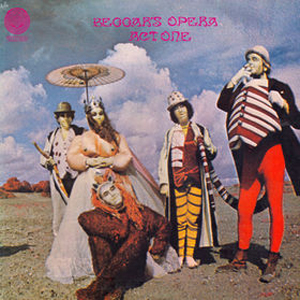 Impact:
Impact: 2
The Trollheart Factor: 0
Linked to:
One of the few, perhaps the only progressive rock band to come out of Scotland before the neo-prog revival of the eighties, Beggars Opera lasted for three albums and a total of seven years before they broke up. Founder Ricky Gardiner later worked with David Bowie and Iggy Pop.
Egg (1969 – 1972 (with a brief revival of sorts in 1974))
Nationality: British
Original lineup: Dave Stewart, Mont Campbell and Clive Brooks
First relevant album: Egg, 1970
 Impact:
Impact: 4
The Trollheart Factor: 0
Linked to: Hatfield and the North, National Health
Another prog band who didn't have too great a time of it. With their debut album released and relatively well received, they seem not to have wanted to put out the followup, and their third album only came about after the split of the band in 1972. Egg also peripherally featured folk supremo Steve Hillage, though in a previous incarnation of the band and before they became Egg.
Eloy (1969 – )
Nationality: German
Original lineup: Frank Bornemann, Erich Schriever, Manfred Wieczorke, Wolfgang Stocker and Helmuth Draht
First relevant album: Eloy, 1971
 Impact:
Impact: 4
The Trollheart Factor: 4
Linked to:
One of the few German progressive rock bands not to be linked to the Krautrock movement, Eloy were in fact pioneers in German rock history, being among the first bands in that country not to just play covers but to compose their own material. Their name is taken from the enlightened humans in the HG Wells novel “The Time Machine”. They are still active today (albeit being in hiatus from 1998 to 2009) although their last album, to date at any rate, was that one in 2009.
Focus (1969 – 1978 (i) 2002 - (ii))
Nationality: Dutch
Original lineup: Thijs van Leer, Jan Akkerman, Hans Cleuver, Martijn Dresden
First relevant album: Focus plays Focus/In and out of Focus, 1970
 Impact:
Impact: 6
The Trollheart Factor: 1
Linked to:
There's never quite been a thriving Dutch prog rock scene, but Focus were the ones to blaze a trail for the Netherlands and are probably best known for the hit single “Hocus Pocus”, as well as having guitarist Jan Akkerman in their ranks at one time.
Hawkwind (1969 – )
Nationality: British
Original lineup: Dave Brock, Nik Turner, Huw Lloyd-Langton, Michael Davies
First relevant album: Hawkwind, 1970
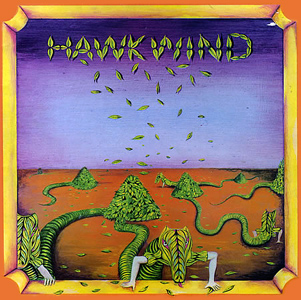 Impact:
Impact: 10
The Trollheart Factor: 8
Linked to: Space Ritual, Motorhead, Pink Fairies, Inner City Unit
Perhaps one of the true progenitors of space rock, and certainly one of the first major bands to cross over into prog rock, Hawkwind are often known for being the springboard for later Motorhead vocalist and founder Lemmy Kilminster, but he did not join until 1971. Hawkwind use science-fiction and fantasy as well as classical literature in their lyrics, make a lot of use of feedback and spoken passages, effects and soundscapes. They are one of the oldest progressive rock bands, having never split up or taken a break, and have been going strong now for a total of forty-six years!
Organisation (1969 – 1970 )
(Already mentioned in the “Before the Storm” feature)
Renaissance (1969 – 1987 (i) 1998 – 2002 (ii) 2002 - (iii) )
Nationality: British
Original lineup: Annie Haslam, Jim McCarty, Keith Relf, John Tout, Michael Dunford, Jon Camp and Terry Sullivan
First relevant album: Renaissance, 1969
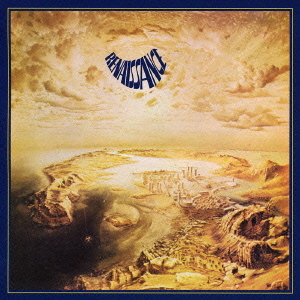 Impact:
Impact: ?
The Trollheart Factor: 1
Linked to:
I must admit, I only know of Renaissance through the hit single “Northern Lights”, and for some reason thought they were Canadian! It seems they've been around from the start though, and are still going, having released a total of thirteen albums, so I had better get reading up on them! They are the first of the bands featured here to actually have released their debut in 1969, so we'll obviously be looking at it.
Supertramp (1969 – )
Nationality: British
Original lineup: Rick Davies, Roger Hodgson, Richard Palmer, Robert Millar
First relevant album: Supertramp, 1970
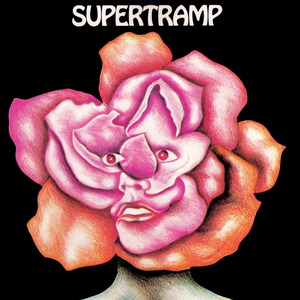 Impact:
Impact: 5
The Trollheart Factor: 9
Linked to:
Although many will scoff at the inclusion of Supertramp as a prog rock band, that is how they started out, later metamorphosing into a sort of Genesis pop clone with hit singles like “Breakfast in America”, “Dreamer” and “The logical song”. Despite their later becoming the creative nucleus of the band and penning some of their greatest hits and best known songs, both Davies and Hodgson were initially reluctant to write lyrics for their debut album and left this to Richard Palmer, with the result that their first album is really nothing like what they would become known for. Although technically there were two incarnations of Supertramp, the one with Hodgson and the one that continued on after he left in 1982, the band never officially broke up so in reality they have been going since 1969, and are still going today, after a fashion.
Uriah Heep (1969 – )
Nationality: British
Original lineup: Mick Box, David Byron, Alex Napier, Paul Newton, Ken Hensley
First relevant album: Very 'eavy, very 'umble, 1970
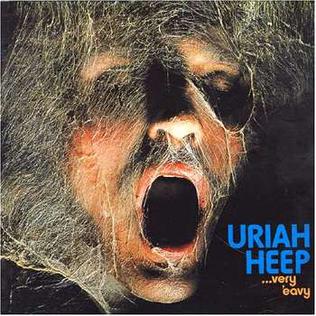 Impact:
Impact: 8
The Trollheart Factor: 5
Linked to:
Another band who have been going since '69 without a break, Uriah Heep have recorded twenty-four albums, their latest being released last year. Founder Mick Box is the only remaining original member.
So those are the main bands --- there were others of course, but I have chosen not to feature every one of them --- that got together this year although most if not all of them would not have an album released for at least another year. As for the albums we're going to look at for 1969...